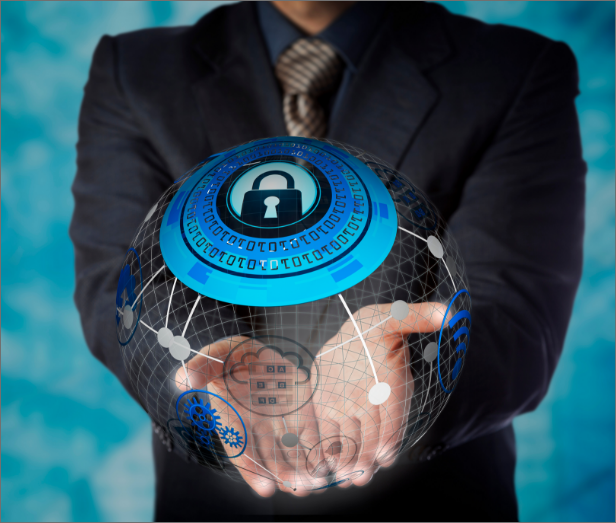EDR stands for Endpoint Detection and Response. It monitors your computers and your mobile devices. Antivirus software focuses solely on viruses and other malware, but EDR can see and stop attacks before they cause damage. Let’s look at some differences between EDR and antivirus software and how it can protect your business.

EDR Defined
EDR stands for Endpoint Detection & Response. We have often called it next-generation antivirus (NGAV). That’s because it fights threats that outwit today’s antivirus solutions. While traditional AV products look for virus signatures in files and memory, EDR products analyse every activity on a network endpoint. They can detect non-malicious anomalies or malware outbreaks in progress before they spread or damage systems. This puts EDR at a greater advantage over traditional security tools when battling advanced persistent threats (APTs). Although some NGAV vendors claim to defend against APTs, these claims are unsubstantiated by data.
Difference Between EDR & Antivirus
The two most common ways to protect computers are with antivirus software or a firewall. What are these tools? In short, they’re programs that scan your computer for malicious code (viruses) and prevent them from infecting your system. Many times, we think of these as mutually exclusive; you either use one or the other. However, EDR is better than an antivirus program most times because it goes beyond virus protection and prevents disruption to the business.
There are many differences between EDR and an antivirus. Antivirus is more of a reactive solution to viruses. Once a computer gets infected with a virus, an antivirus will clean it up but not stop future infections from occurring. This means that each time you’re hit by a virus, you need to run your scans manually. You have no protection in real-time. This doesn’t mean that antivirus software is useless; they protect against some types of malware like worms, which can spread through networks undetected. They also work well with another line of defence: firewalls.
We can think of EDR as a proactive solution to viruses. It’s not just about scanning for them; it also blocks infected websites from being accessed. EDR has another component that scans your network every time you access it. This means that even if you have a virus on your computer when you go to a webpage or open an email attachment—if it’s infected with malware—it will not affect your entire network. This is good news for businesses everywhere with the rise in ransomware attacks. It means a single employee cannot get the entire company’s network infected if they come across some malware.

Why do businesses need EDR?
While it’s true that antivirus software can prevent virus infections from happening in a business, these infections only make up 10% of cyberattacks. Attacks like keylogging can do much more damage to businesses and still be harder to detect than typical viruses. 80% of attacks do not get detected until days or weeks after they happen. For businesses who want to stop a cyberattack before it happens or discover it within hours instead of days or weeks, EDR is one major way to do so. An EDR system will work proactively to keep your systems protected against many attacks. It will also make sure those threats don’t disrupt your workday by blocking any malicious traffic on your network as soon as it appears. And if something sneaks through, an EDR system will help you find out about it immediately without letting sensitive information fall into someone else’s hands. PowerbITS provides Antivirus & Endpoint Detection and Response Solutions for SMB customers across Australia. Contact us today to learn more!
Which industries are using EDR?
Though many businesses are making use of EDR solutions as a method of protection against downtime, some seem to be more interested in its use than others. Small to medium business is one area where IT managers have cited EDR software as something they’d like to incorporate into their infrastructure. This is not surprising when you consider that the industry has a well-known tendency towards high turnover rates among employees. It can take many weeks or even months before it becomes apparent that an employee has been abusing their position. To avoid these issues of theft and loss entirely, businesses need to know that every member of their staff gets thoroughly vetted before joining them on site. Some industry sectors have been slow on the uptake. With this, high turnovers among staff has become a greater risk.

Doesn’t an antivirus keep you safe?
There’s a common misconception that an antivirus program keeps you completely safe from all viruses. While it may protect you from some of them, antiviruses are no longer effective at stopping threats. Instead, enterprises need to use endpoint detection and response (EDR) software. There are many reasons EDR is replacing antiviruses. First, there’s a new type of malware called ransomware that steals personal data and encrypts computer files so they’re inaccessible. An antivirus program would only detect ransomware after it has encrypted your files. With EDR tools in place, however, firms can quickly stop ransomware attacks in their tracks by locating every piece of malware on your system. In addition, because anti-viruses only look for specific types of malicious code and no other potential vulnerabilities, hackers will often find ways around them.
With solutions like EDR in place, however, companies will have a more thorough understanding of what’s going on within their network and better be able to prevent threats before they cause damage. It is important to note that using both solutions isn’t a substitute for keeping systems updated! Proper maintenance helps ensure we protect your company against any virus or other security threat that might pop up out of nowhere.
EDR Is the New Antivirus
It’s clear to see that EDR is the new antivirus protection for 2022 and beyond. Antiviruses just can’t keep up with all of today’s malware, but managed EDR solves these problems with a simple shift in focus: Instead of protecting against viruses, it focuses on managing network security so that nothing bad ever gets through your defences and your business can continue to operate smoothly. The best part of managed EDR services is that you don’t need any special knowledge or skills to use them; they’re a layer built atop your existing firewall or router, which means you won’t have to go out and buy expensive new hardware either. However, you need professionals like PowerbITs to do the installation and maintenance.
PowerbITs have certified professionals that help small to medium businesses with their data security needs using state-of-the-art EDR solutions. We are constantly looking at new ways to improve our existing services while also searching for new solutions to protect against emerging threats. If you’re interested in finding out more about how we can safeguard your company’s sensitive information with powerful EDR security solutions, contact us to learn more about what we can do for your business before it’s too late for your business’ network.